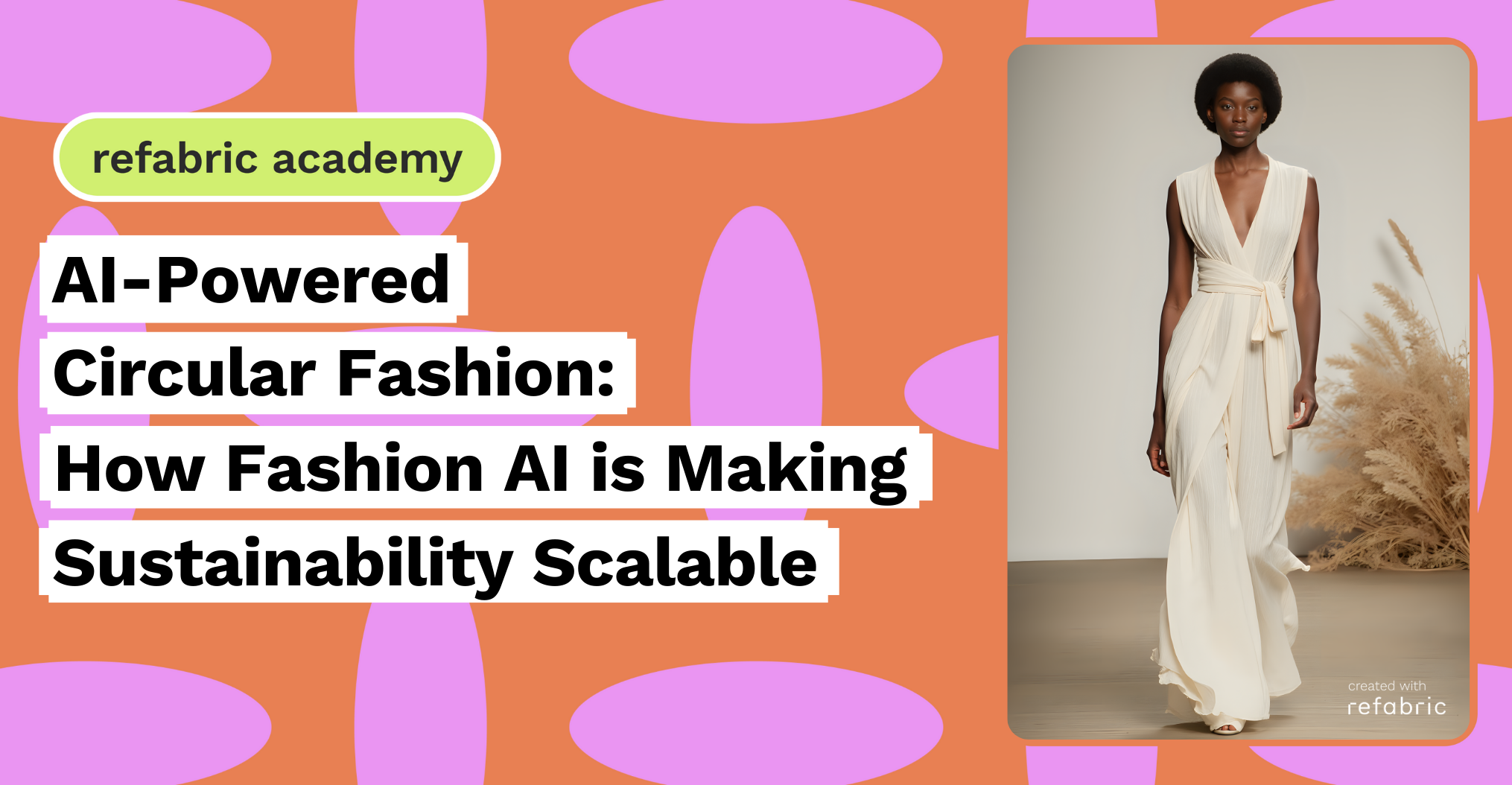Fashion AI is revolutionizing sustainability in the fashion industry, making circular fashion more scalable and efficient than ever. By integrating artificial intelligence into design, production, and waste management, brands can optimize resources, minimize environmental impact, and promote a circular economy. The rise of AI-powered tools is redefining how fashion approaches sustainability, ensuring that eco-friendly initiatives are both practical and profitable.
Reducing Waste with AI-Optimized Production
One of the most significant contributions of fashion AI to sustainability is its ability to minimize waste. Traditionally, fashion production leads to excessive material waste due to inefficient cutting patterns and overproduction. AI-driven design software analyzes garment structures to create optimal patterns, reducing textile waste during manufacturing.
Additionally, AI-powered inventory management helps brands predict demand accurately, preventing overproduction and unsold inventory. This shift not only reduces environmental impact but also improves the profitability of sustainable fashion by aligning production with consumer needs.
Upcycling and AI-Driven Material Innovation
Fashion AI is also playing a crucial role in upcycling and material innovation. AI can analyze discarded fabrics and garments to determine the best way to repurpose them, transforming waste into new, high-quality fashion pieces. By leveraging AI algorithms, brands can categorize textiles based on composition and wearability, making upcycling more efficient and cost-effective.
Furthermore, fashion AI is aiding in the discovery of sustainable materials by analyzing data on fabric durability, biodegradability, and environmental footprint. This allows designers to choose the most eco-friendly textiles while maintaining quality and style.
Personalized Fashion with Minimal Waste
The demand for personalized fashion is growing, and fashion AI enables brands to meet this demand sustainably. AI-driven customization allows consumers to order garments tailored to their preferences, reducing the need for mass production and excess inventory. By analyzing customer data, AI-powered tools recommend styles, sizes, and fits that suit individual buyers, ensuring higher satisfaction and lower return rates.
Virtual fitting rooms and AI-generated digital prototypes further enhance sustainability by allowing customers to try on outfits virtually before making a purchase. This reduces the environmental impact of returns and unnecessary production, aligning fashion with a more responsible consumption model.
Fashion AI and Circular Business Models
AI is also transforming the way fashion brands operate by promoting circular business models such as rental, resale, and clothing repair services. AI-powered platforms help consumers find second-hand or rental options tailored to their style preferences, extending the lifecycle of garments and reducing overall waste.
Additionally, AI-driven repair and refurbishment technologies enable brands to restore damaged clothing, making circular fashion more viable. These fashion AI-assisted solutions not only support sustainability but also create new revenue streams for fashion companies embracing eco-conscious practices.
AI’s Role in Recycling and Waste Management
Recycling in the fashion industry has long been a challenge due to the complexity of textile composition. Fashion AI is revolutionizing textile recycling by using machine learning to sort and separate different fabric types efficiently. AI-driven robotic systems can identify and process materials with greater accuracy, ensuring that textiles are properly repurposed rather than ending up in landfills.
Moreover, AI-powered blockchain solutions help brands track the entire lifecycle of garments, from production to disposal. This transparency allows companies to implement responsible recycling strategies and improve supply chain sustainability.
The Future of Fashion AI in Sustainability
As AI continues to evolve, its role in sustainable fashion will become even more prominent. AI-powered solutions will further refine circular fashion models, making sustainability an integral part of the industry rather than a niche concept. From AI-assisted fabric regeneration to smart supply chains that eliminate waste, the future of fashion AI is paving the way for a greener, more responsible industry.
By embracing AI-driven sustainability initiatives, fashion brands can reduce their environmental impact while maintaining efficiency and profitability. The combination of artificial intelligence and circular fashion is not just a trend—it is the foundation of a more sustainable future for the entire fashion ecosystem.
Fashion AI is proving that sustainability and innovation can go hand in hand, making eco-friendly fashion scalable, accessible, and impactful. As brands integrate AI-powered solutions into their sustainability strategies, they are leading the charge toward a more responsible and circular future for fashion.
